Dating a Narcissist: Spotting the Signs and Protecting Yourself
 Dating a narcissist can feel like being on a rollercoaster with unpredictable highs and sudden, gut-wrenching drops. Initially, you might be swept off your feet by your partner's charm, confidence, and apparent affection. They may shower you with attention and make you feel incredibly special. However, as time goes by, you might notice a shift […]
Dating a narcissist can feel like being on a rollercoaster with unpredictable highs and sudden, gut-wrenching drops. Initially, you might be swept off your feet by your partner's charm, confidence, and apparent affection. They may shower you with attention and make you feel incredibly special. However, as time goes by, you might notice a shift […]Dating a narcissist can feel like being on a rollercoaster with unpredictable highs and sudden, gut-wrenching drops. Initially, you might be swept off your feet by your partner's charm, confidence, and apparent affection. They may shower you with attention and make you feel incredibly special. However, as time goes by, you might notice a shift in dynamics as your partner's self-focus and lack of empathy become more pronounced.
Recognizing the signs of narcissistic personality disorder in a relationship is crucial for your emotional well-being. It often involves a pattern of self-centeredness, a need for admiration, and a lack of consideration for others. Your relationship may feel less like a partnership and more like a one-person show where your needs are often ignored or dismissed. Love and admiration are not about inflating someone's ego but about mutual respect and understanding, which can be lacking when dating a narcissist.
Setting boundaries is essential when dealing with a narcissist. It's about knowing where you end and the other person begins, ensuring that your values, needs, and space are respected. It's not uncommon for those with narcissistic tendencies to challenge these boundaries, but standing firm is vital for your self-respect and mental health.
Key Takeaways
- Dating a narcissist can involve a seductive start followed by challenging dynamics.
- Recognizing narcissistic traits helps protect your emotional health.
- Setting clear boundaries is crucial for maintaining self-respect.
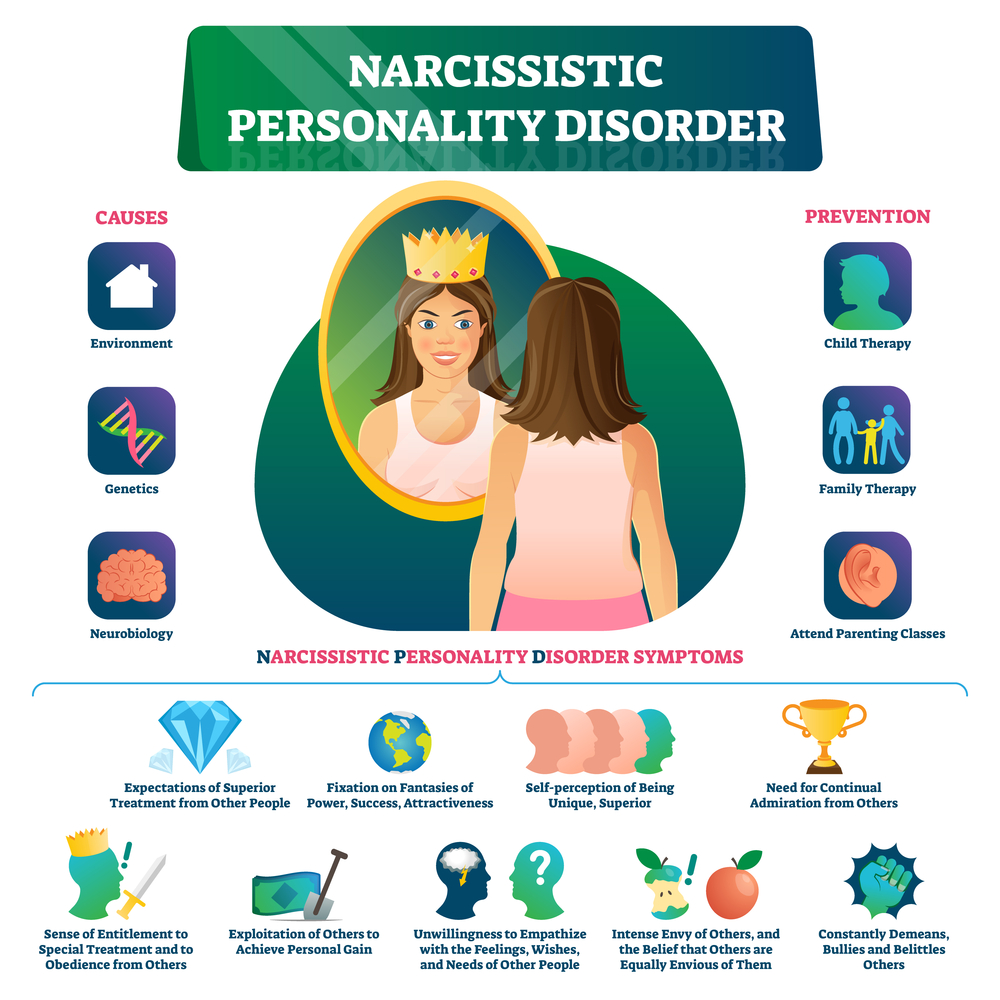
Recognizing Narcissism
When stepping into the dating scene, your emotional health must be able to spot narcissistic tendencies early on.
Traits of a Narcissist
Narcissists are often marked by a sense of entitlement and a grandiose view of their talents. They might seem charming at first, but beneath that facade, you might notice:
- Inflated sense of importance: They talk about their achievements excessively and expect special treatment.
- Need for excessive admiration: Compliments are their fuel, and they fish for them routinely.
- Lack of empathy: Your feelings might seem unimportant to them or be outright ignored.
Key takeaway: Watch for these traits, which can be early warning signs of deeper narcissistic patterns.
Narcissism vs. Confidence
It’s easy to mistake confidence for narcissism, but there's a fine line:
- Confidence: Based on achievements and ability, accompanied by humility.
- Narcissism: Swings to superiority and fantasy and comes off as arrogance.
Those with healthy confidence will recognize and respect your accomplishments, too, while narcissists may diminish or overshadow yours to keep the spotlight on themselves.
Key takeaway: Look for mutual respect and validation, which is lacking when someone leans toward narcissism.
 Red Flags in Dating
Red Flags in Dating
Early on, certain behaviors can wave big red flags, such as:
- Fast-paced relationships: Narcissists may rush intimacy to hook you emotionally.
- Manipulation: They might use guilt or persuasion to bend your will to theirs.
- Control: What starts as suggestions may escalate to demands on your time, appearance, or interactions with others.
Be cautious if you feel like you're always the one compromising or your boundaries aren't respected.
Key takeaway: If you sense a pattern of manipulation and disrespect, trust your gut—it's your best ally in recognizing unhealthy dynamics.
The Impact on Partners
When dating a narcissist, you can expect a distinct impact on your emotional well-being, as well as on your perceptions of self-worth and your ability to manage stress. Here’s what you need to know.
Emotional Toll
Narcissistic partners often lack empathy, which can lead to a one-sided relationship. You might find yourself:
- Feeling misunderstood: Your emotions may not be acknowledged, leaving you isolated.
- Experiencing an emotional roller coaster: The unpredictability of a narcissist’s reactions can subject you to high highs and low lows.
Key Takeaway: Protecting your emotional health is crucial when interacting with a partner who does not consistently consider your feelings.
Impact on Self-Esteem
It’s common to see a dip in how you view yourself. Narcissists might:
- Criticize you often, leading to self-doubt.
- Disregard your achievements, making it harder for you to value your successes.
Key Takeaway: Remember, your value is not determined by someone's inability to see your worth.
Coping with Stress
Being with a narcissist can be a constant source of stress. You may:
- Find relaxation techniques like deep breathing or meditation helpful.
- Benefit from setting clear boundaries to reduce the stress associated with their demands.
Key Takeaway: Having stress-busting strategies to maintain your sanity in a challenging relationship is essential.
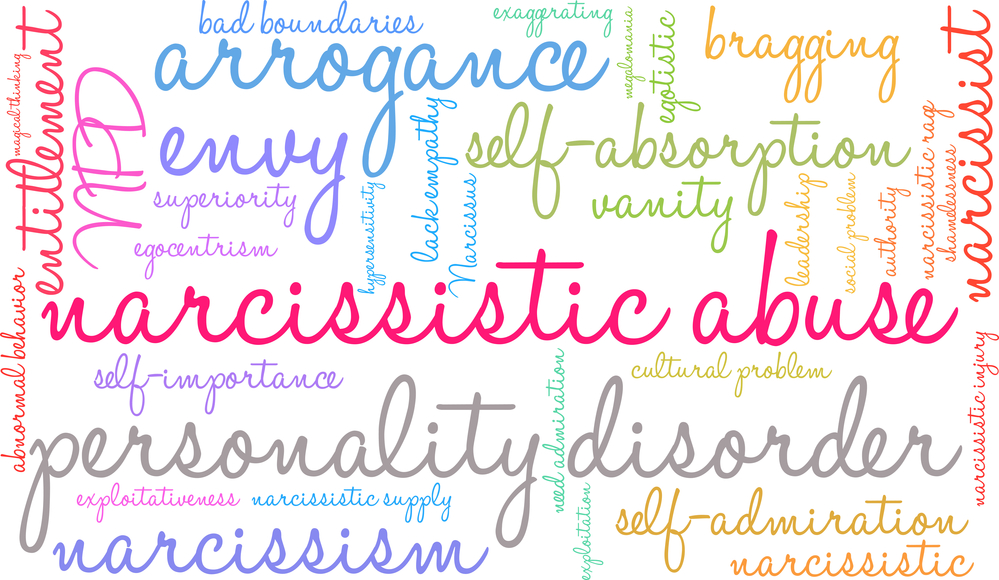
Understanding Narcissistic Behavior
In dating a narcissist, you'll likely encounter distinct behaviors that can be both charming and challenging. It's key to recognize these to navigate the relationship effectively.
Charm and Charisma
Narcissists often exhibit a magnetic personality that draws you in from the start. You may notice:
- An infectious confidence that can make you feel special and valued.
- A knack for storytelling that puts them at the center of attention.
Key Takeaway: While their charm can be alluring, it's important to watch for signs that it is used to influence or control.
Manipulation Tactics
Being involved with a narcissist, you might find yourself on the receiving end of various manipulative strategies. Be aware of:
- Gaslighting, a form of manipulation where your reality is distorted, often leading you to doubt your own experiences.
- Frequent mind games that serve to assert their dominance or superiority.
Key Takeaway: Trust your gut. If something feels off, it may be a manipulative tactic.
Need for Admiration
A quintessential trait of narcissism is a deep-seated need for admiration. This manifests as:
- A constant quest for compliments and affirmations of their uniqueness and superiority.
- Outsize reactions to perceived criticism, which might show as anger or withdrawal.
Key Takeaway: Be conscious of how much your interactions revolve around their need for admiration.
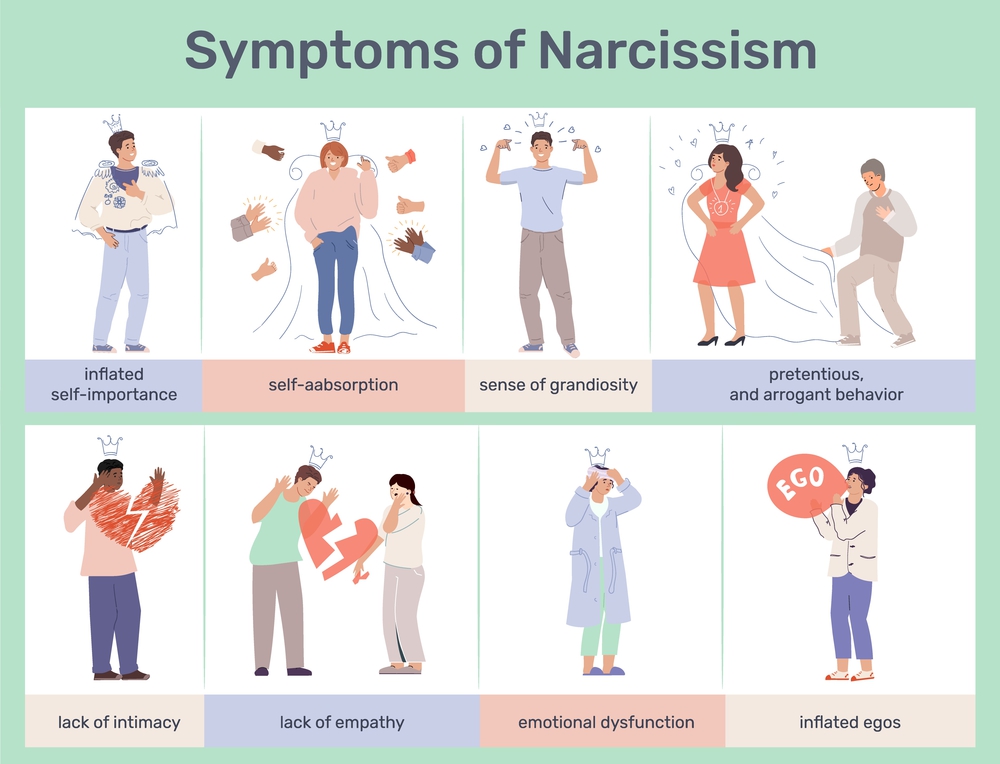
Setting Boundaries
In a relationship with a narcissist, setting firm boundaries is paramount to protect your well-being.
Importance of Boundaries
Boundaries serve as your personal guidelines, rules, or limits that you establish to safeguard your own emotional and mental health. They are essential in any relationship, but particularly so with a narcissist who may not naturally consider your needs. Setting boundaries helps you maintain respect and dignity in the relationship.
- Clarify your values: Understand what's most important to you and make these the core of your boundaries.
- Be consistent: Once set, consistently uphold your boundaries to ensure they are respected.
Key takeaway: Boundaries are the foundation of a healthy relationship dynamic, especially when dealing with a narcissist.
Communicating Expectations
Clear communication is essential when setting boundaries. It is crucial to express your expectations with clarity and conviction. However, keep in mind that your tone can significantly impact how your message is received. Therefore, aim for a tone that is firm yet calm.
- Be direct: Use "I" statements to express how certain behaviors affect you.
- Avoid ambiguity: Be as specific as possible to prevent misunderstandings.
Key takeaway: Good communication helps ensure your boundaries are understood and taken seriously.
Maintaining Personal Space
Personal space, both physical and emotional, is essential. It allows you time to recharge and reflect, giving you the space needed to maintain a sense of self. Narcissists often challenge personal space, viewing it as a form of rejection, but here's how you can maintain it:
- Schedule 'me' time: Regularly set aside time to indulge in activities you enjoy.
- Be clear about needs: Ensure the narcissist in your life understands that your need for space is about your well-being, not about them.
Key takeaway: Protecting your personal space is not selfish; it's crucial to self-care and maintaining a healthy relationship.
The Role of Attention
In a relationship with a narcissist, attention serves as both fuel and battleground, with social media often magnifying the dynamics.
Excessive Attention Seeking
Narcissists crave excessive attention and admiration to affirm their self-esteem. They often require continuous praise and can become unhappy or angry if they feel they are not receiving their "deserved" attention.
- Strategies for Coping:
- Set boundaries about what attention is reasonable.
- Avoid reinforcing their behavior with constant attention.
Key Takeaway: Balance is essential; giving excessive attention can perpetuate unhealthy patterns.
Social Media and Narcissism
Social media platforms can be a narcissist’s haven for gaining attention and managing their image.
- Observations:
- Likes and comments often translate to validation.
- They may curate a flawless persona online.
Key Takeaway: Remember, their online presence is often a curated highlight reel, not an authentic reflection of real life.
Addressing Validation Needs
Narcissists have a deep need for validation to maintain their self-worth.
- Tips:
- Recognize that their need for validation is more about them than about you.
- Encourage pursuits that foster self-validation rather than external affirmation.
Key Takeaway: Encouraging self-sufficiency in their validation can create a healthier interaction dynamic.
When dating a narcissist, you may frequently encounter challenging control issues. It's essential to understand and navigate these dynamics effectively for a healthier relationship.
Power Dynamics in Relationships
Key Takeaway: Knowing power imbalances can help you maintain your independence.
- Recognize the Signs: Narcissists often exert control by making decisions for both partners, sometimes without consultation.
- Assert Your Needs: It's crucial to express your desires and establish boundaries. Schedule regular check-ins to discuss power distribution in your relationship.
Avoiding Manipulation
Key Takeaway: Stay true to yourself, and don't be swayed by manipulative tactics.
- Stay Informed: Learn to identify common manipulative strategies, such as gaslighting, where your reality is questioned, or love bombing, where excessive affection influences you.
- Seek Support: Talk to friends or a therapist about your relationship. They can offer an outside perspective and help spot manipulation you might have missed.
Encouraging Compromise
Key Takeaway: Compromise is key to balancing relationship dynamics.
- Initiate Open Dialogue: Encourage discussions that focus on finding a middle ground rather than 'winning' the argument.
- Set Priorities: Agree on what's negotiable and what's not. Understand that some of your needs are as important as your partner's and should be treated that way.
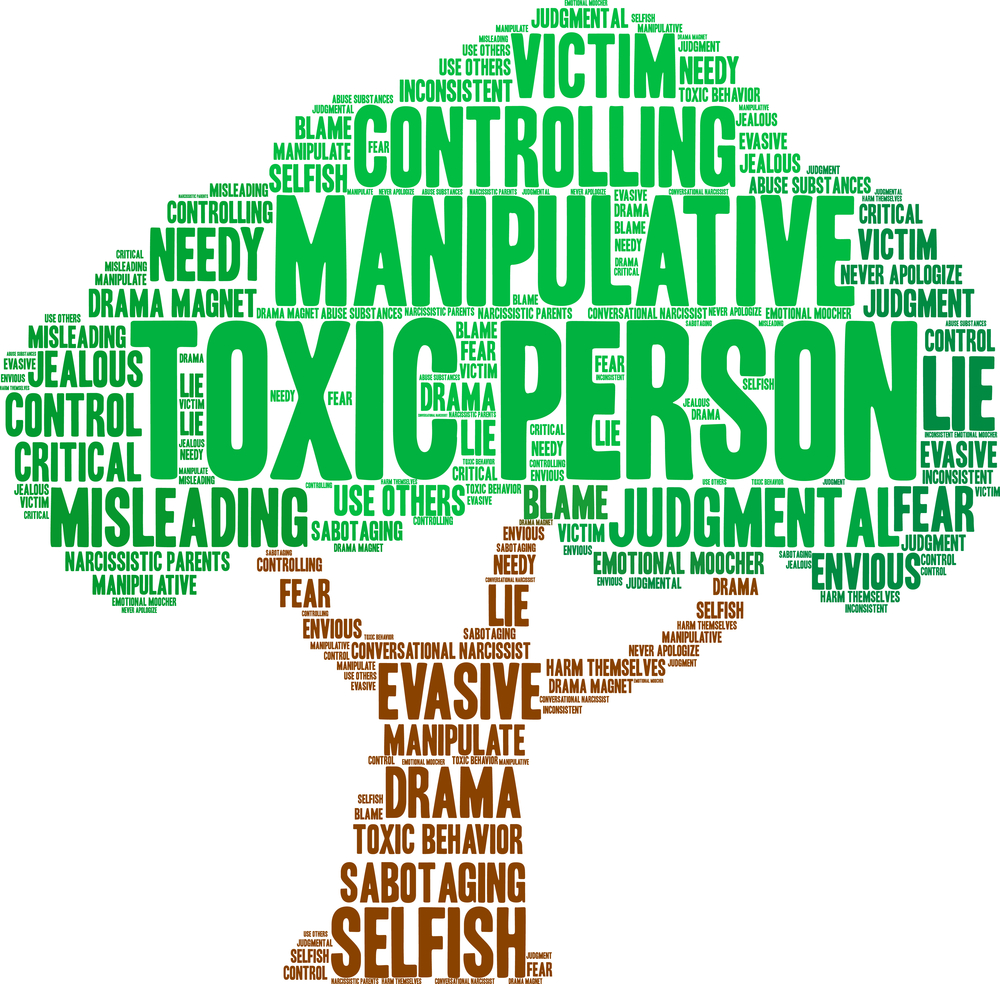
Responding to Aggression and Abuse
Dealing with aggression and abuse from a narcissist can be overwhelming, but recognizing abusive patterns and understanding how to safeguard your well-being is essential. It's crucial you know where to find support during such times.
Identifying Abusive Patterns
Abuse can creep up in various forms—physical, emotional, or psychological. Your first step is to spot these behaviors. Here's what to look out for:
- Excessive Criticism: Continuous disparaging comments aimed at you.
- Control Tactics: Restrictions on who you see or what you do, often disguised as concern.
- Gaslighting: Manipulating you into questioning your sanity.
Key Takeaway: If you recognize recurring abusive patterns, it's a red flag that shouldn't be ignored.
Protecting Your Well-being
Your safety and mental health come first. Here are strategies to protect yourself:
- Set Boundaries: Be clear about what behavior you will not tolerate.
- Have an Exit Plan: Know how to leave a situation quickly if it escalates.
Remember, no one has the right to harm you, and standing up for yourself is not only okay but also necessary.
Key Takeaway: Protecting yourself means drawing a line and having a plan of action should the line be crossed.
Seeking Support
You don't have to face this alone:
- Contacts List: Keep a list of people you can contact at any time.
- Professional Help: A therapist or mental health professional can provide guidance.
Talking to someone who understands can make all the difference in how you cope and move forward.
Key Takeaway: Building a support network can be your lifeline, offering emotional strength and practical advice.
Healing and Recovery
Recovering from a relationship with a narcissist is a journey that requires patience, self-compassion, and practical strategies. It's about rebuilding your self-esteem and finding balance in your life again.
Therapy and Mental Health
Engaging with a qualified therapist can help you unravel the emotional impact of dating a narcissist. Therapy offers a safe space to:
- Process your experiences: Understanding the dynamics of the relationship and its effect on you.
- Develop coping skills: Learning how to manage emotions and thoughts from past relationships.
Key takeaway: Therapy can be a beacon, guiding you through the fog of confusion and hurt toward a brighter, healthier mindset.
Building a Support Network
A strong support network is crucial for healing. Lean on:
- Trusted friends: Who can offer a listening ear and a shoulder to lean on.
- Support groups: You can connect with others with similar experiences.
- Family: Who often provide unconditional love and reassurance.
Key takeaway: You're not alone on this path; the right people will walk with you, helping to lighten the load.
Self-Care Strategies
Focusing on self-care helps you regain control and nurtures your well-being. Start with:
- Movement: Regular exercise, even walking, can improve your mood.
- Nutrition: Balanced meals can help stabilize your energy levels.
- Sleep: Aim for a consistent, restful sleep to help your body and mind recover.
- Boundaries: Learning to say no protects your energy and honors your needs.
Key takeaway: Self-care is about honoring your body, mind, and spirit. Small daily acts build up to big changes in how you feel and function.
Moving Forward
After enduring the challenges of dating a narcissist, it’s time to focus on reconstructing a healthier you and understanding the valuable lessons gained from past experiences.
Learning from the Experience
Consider the signs you may have overlooked and acknowledge the strength it took to move past such a relationship. This reflection can be a powerful tool for personal development.
- Recognize Patterns: Identify behaviors that indicate narcissism.
- Set Boundaries: Learn how to establish firm limits for future interactions.
Key Takeaway: Reflecting on past signs helps prevent similar issues from arising in future relationships.
Creating Healthier Relationships
Armed with new insights, you’re now better equipped to build mutually respectful and fulfilling relationships.
- Communication: Aim for open and honest conversations.
- Mutual Respect: Seek out partners who value give-and-take.
Key Takeaway: Focus on open communication and respect to foster a balanced and loving relationship.
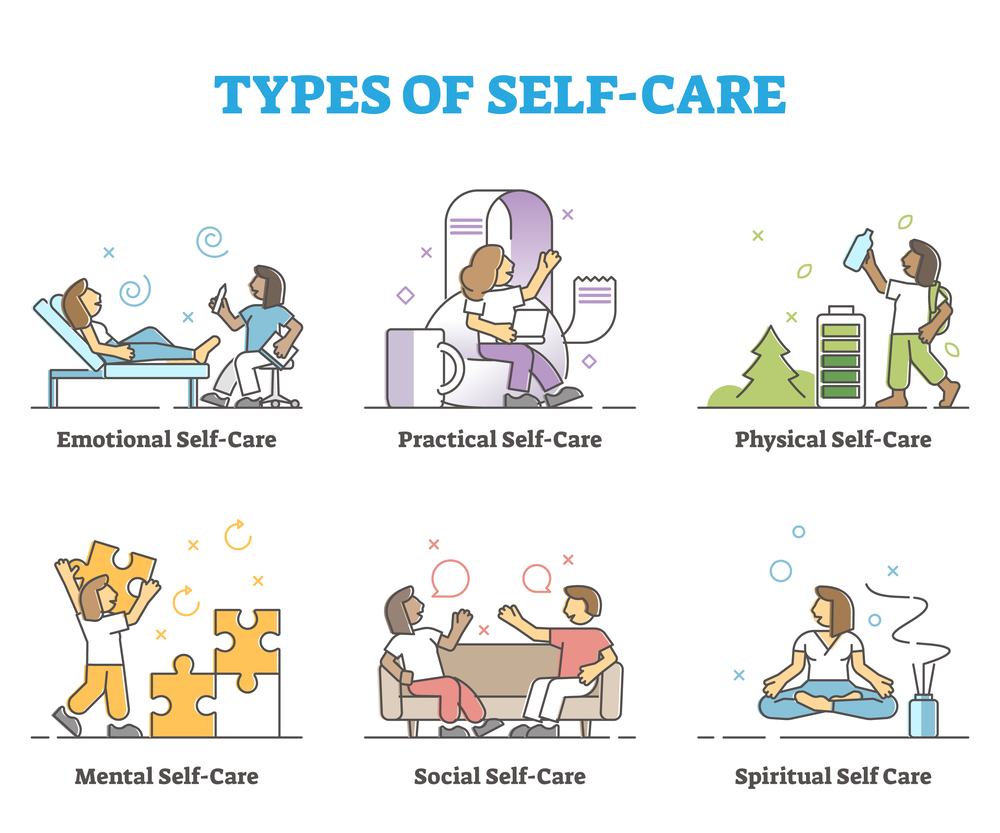 Embracing Personal Growth
Embracing Personal Growth
Personal growth is a journey that never ends, but every step forward is a leap toward a more fulfilling life.
- Self-Care: Prioritize your emotional and physical well-being.
- New Hobbies: Explore new activities that bring you joy and confidence.
Key Takeaway: Prioritizing self-care and exploring new interests are integral to your personal development.

Professional Insights
In navigating the complexities of dating a narcissist, professional insights offer you valuable strategies for understanding and coping. These insights draw on concrete expertise and research-based approaches.
Advice from Psychologists
Psychologists have a deep understanding of narcissistic behavior patterns and recommend setting clear boundaries for your well-being. When engaging with a narcissist, it's crucial to:
- Identify Your Boundaries: Know your limits and communicate them.
- Maintain Independence: Keep up with your hobbies, interests, and social circle.
Key takeaway: Setting firm boundaries helps maintain your sense of self.
Therapeutic Approaches
If you're involved with a narcissist, therapists often suggest several strategies to protect your mental health, such as:
- Engage in Self-Care: Prioritize activities that promote your peace and happiness.
- Consider Therapy: Regular sessions with an LCSW or LMFT can provide a supportive space to process your experiences.
Key takeaway: Prioritizing your mental health through self-care and therapy can be empowering.
Expert Opinions
Clinical psychologists and experts with PhDs in psychology generally agree on several points when it comes to dating narcissists. They warn that:
- Expectations Need Management: Be realistic about the possibility of change in a narcissist’s behavior.
- Awareness is Key: Recognize the signs of narcissistic behavior early to inform your choices.
Key takeaway: Being informed and realistic about the situation can aid your decision-making process.
Real Stories and Experiences
When you’re in a relationship with someone who has Narcissistic Personality Disorder (NPD), the waters can be turbulent. Jane, a software developer, found herself adrift in such a relationship. She shared that, at first, her partner's confidence seemed magnetic. However, she soon realized that it masked deep-seated insecurity and a need for constant admiration. Conversations were one-sided, and her feelings seemed irrelevant.
Michael, a teacher, thought he'd hit the jackpot when he started dating someone he believed was his mirror soul. The reality set in that it was more about his partner's ego than a mutual connection. He described a cycle of idealization followed by devaluation, which left him emotionally drained.
However, dating a narcissist doesn’t always doom a relationship. Some couples find a path to mutual understanding. Lisa, a founder of a small startup, worked with a therapist to navigate her relationship. She became adept at setting boundaries and learning when to step back. Her partner also sought help and built a stronger, more balanced partnership.
Key Takeaways:
- Relationships with someone who has NPD can start with attraction to their confidence but may lead to recognition of deeper issues.
- Communication often feels one-sided, and your feelings might seem neglected.
- Success in such relationships can be possible when partners are willing to work on themselves and establish boundaries.
Frequently Asked Questions
Identifying a narcissist can be challenging, especially when you're emotionally involved. These FAQs offer insights into familiar patterns of behavior and strategies for those who find themselves in a relationship with a potential narcissist.
What are common red flags to watch out for in a partner that might indicate narcissistic traits?
Your partner may exhibit certain alarming behaviors that signal narcissistic traits, such as a constant need for admiration, a lack of empathy, or a sense of entitlement. They might frequently belittle your achievements or become envious of others' success. Remember, consistency in these patterns is a warning sign, not just an off day.
Key takeaway: Be vigilant of behaviors like a lack of empathy and habitual self-centeredness.
How might narcissistic behavior manifest itself during the course of a relationship?
As the relationship unfolds, these behaviors might become more prominent:
- Frequently shifting blame to you, never admitting fault
- Using gaslighting tactics to make you doubt your memory or feelings
- Isolating you from friends and family to maintain control
Recognizing these patterns helps you understand the emotional climate a narcissist creates.
Key takeaway: Narcissistic behavior often escalates, undermining your self-esteem and altering your social network.
What are the typical ways in which a narcissist might treat their partner?
Typically, a narcissist will:
- Demand constant attention and admiration
- Show little regard for your feelings or needs
- Be competitive, even in a relationship
You may feel more like an accessory to their ego rather than a partner.
Key takeaway: You're likely to feel undervalued as the narcissist prioritizes their needs over yours.
Can you explain the four stages of narcissistic abuse in a relationship?
In a relationship with a narcissist, you might experience these stages:
- Idealization - They put you on a pedestal, often moving the relationship forward quickly.
- Devaluation - Their attitude shifts, criticism starts, and you're often confused.
- Discarding - You may feel rejected and abandoned as they withdraw their affection.
- Hoovering - They attempt to draw you back in with promises of change or renewing affection.
Understanding the cycle can help you break free from its repetition.
Key takeaway: Recognize the cycle of idealization, devaluation, discarding, and hoovering as it's a sign of manipulative behavior.
How can one tell if their friend is in a relationship with a narcissist?
Look for signs like:
- Your friend making excuses for their partner’s behavior
- Noticing a significant change in your friend's self-esteem or personality
- Withdrawal from social activities they once enjoyed
It's also important to listen to your gut feeling about the changes in your friend.
Key takeaway: Trust your instincts if you feel something about your friend's relationship is off.
What behaviors tend to discourage or 'turn off' a narcissist in a relationship context?
To deter a narcissist, someone might:
- Set firm boundaries and stick to them
- Avoid giving excessive praise or attention
- Maintain independence in terms of thoughts and social circles
Doing so doesn't feed into their need for admiration and control.
Key takeaway: Asserting your boundaries can discourage a narcissist's manipulative behaviors.

 Navigating Control Issues
Navigating Control Issues